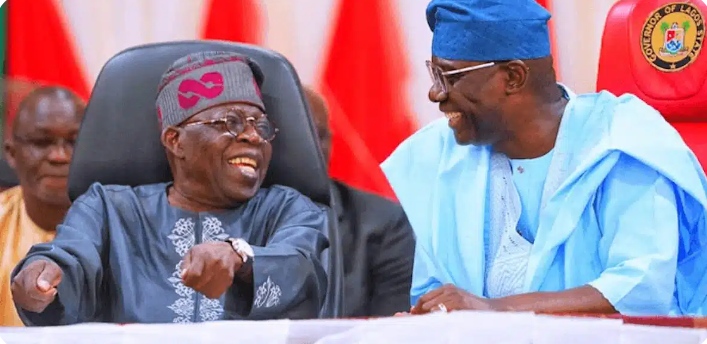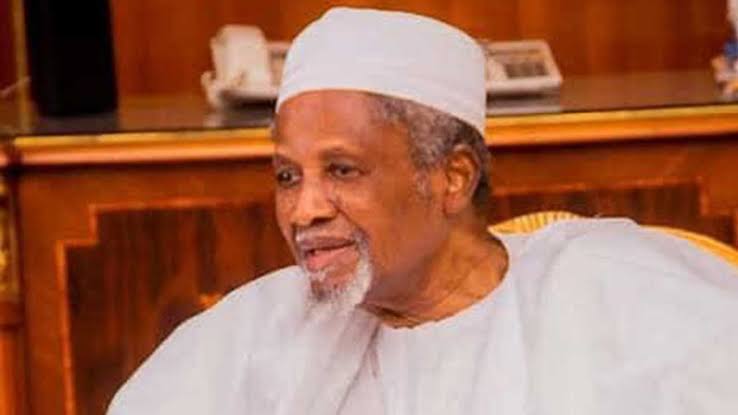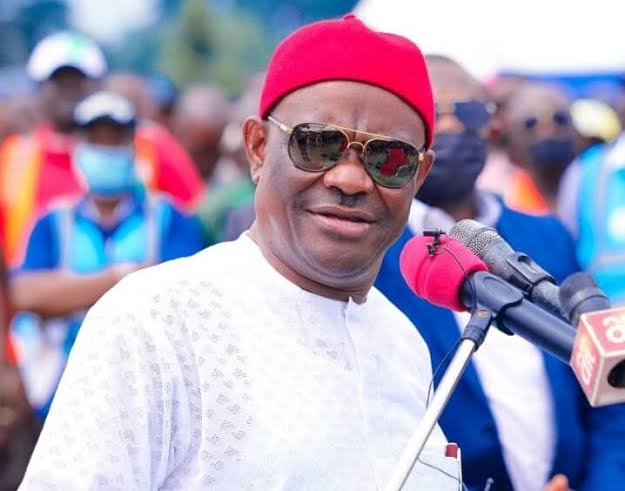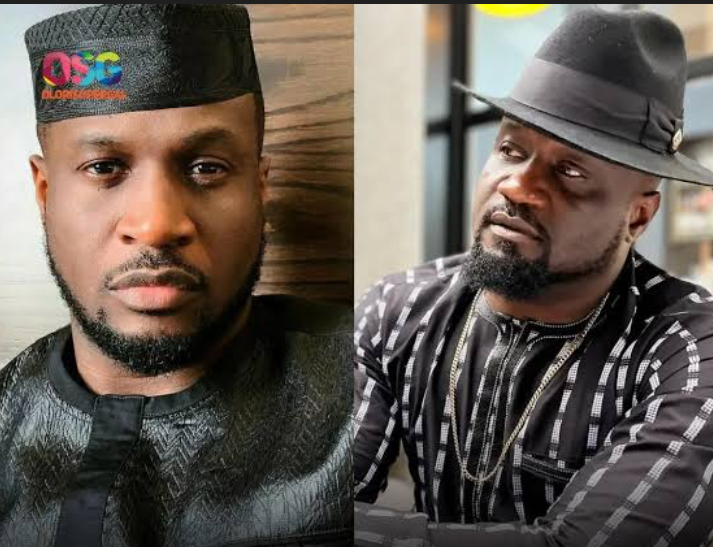
Handshake or Headlines? Sanwo-Olu Laughs Off Rumors of Rift with President Tinubu

In what has rapidly become one of the most talked-about political moments of recent weeks, Lagos State Governor Babajide Sanwo-Olu has moved to quash speculation of a fallout with President Bola Ahmed Tinubu after a now-viral video seemed to capture the president deliberately skipping a handshake with him. The governor, in a calm but pointed response during a Sunday interview with the Nigerian Television Authority (NTA), dismissed all claims of discord, describing the rumors as “baseless” and the result of overzealous political observers seeing friction where none exists.
The controversy was sparked during the May 31 commissioning of the Lagos-Calabar Coastal Highway, a high-profile federal infrastructure project seen as pivotal to Nigeria’s regional development strategy. As President Tinubu made his way down a line of dignitaries in the front row, cameras caught what appeared to be a deliberate bypass of Governor Sanwo-Olu’s outstretched hand. The president proceeded to greet the next guest, leaving viewers to wonder if the moment was a subtle public snub or a misunderstanding caught at the wrong angle.
Social media did what it does best — turning a few seconds of ambiguity into a storm of assumptions, theories, and even memes. Hashtags like #SanwoSnub and #HandshakeGate began trending. Political commentators weighed in with varying levels of alarm, many questioning the implications of such a public oversight between two men with a long and well-documented political history.
Fuel was added to the fire days later when Governor Sanwo-Olu was conspicuously absent from the commissioning of the Lekki Deep Sea Port Access Road at the Dangote Refinery, another key infrastructure project taking place within his own state. In stark contrast, governors from Plateau, Abia, Enugu, Ogun, Borno, and Kaduna states were present and photographed alongside the president.
The dual incidents sparked widespread speculation about a possible rift between Sanwo-Olu and Tinubu — a scenario that would have seismic implications for Lagos politics, given Tinubu’s enduring status as the de facto political godfather of the state and the man largely credited with engineering Sanwo-Olu’s rise to power.
But when asked about the so-called fallout, Sanwo-Olu was quick to pour cold water on the claims.
“Did you see any discord? Did you see any?” the governor asked with a smile during his NTA interview. “Can’t you see I’m smiling? There’s none.”
He went on to criticize those he accused of exaggerating political drama for personal or partisan gain.
“You know, there are people who believe they are more Catholic than the Pope. There are things you see people do; they cry more than the bereaved,” Sanwo-Olu said, calling the gossip “needless noise.”
Perhaps most telling was the governor’s reiteration of the personal bond he claims to share with President Tinubu, a man often referred to by supporters as the architect of modern Lagos.
“You know, father and son are things we always, always ensure we are clear. There’s nothing at all,” Sanwo-Olu continued. “He is my father, he is my leader, and we are grateful that he gave us the audience today to come in and say hello to him.”
His comments came after he and other members of the influential Governor’s Advisory Council (GAC) paid a visit to the president at his Ikoyi residence. The meeting, reportedly cordial and without incident, appeared to reinforce the image of unity the governor sought to project during his interview.
Still, in Nigeria’s high-stakes political theater, where loyalty can be both currency and weapon, optics matter. Public handshakes, appearances at key events, and who is seen where — and with whom — all serve as unofficial barometers of political favor. A skipped handshake may be meaningless to some, but to others, it can be read as a silent but potent message. In this case, whether that message was ever intended remains hotly debated.
The broader context of Nigeria’s political landscape may also offer some clues. With President Tinubu’s administration still navigating its early days, and regional power dynamics constantly shifting, it’s not unusual for minor incidents to be overanalyzed for clues about deeper realignments. Lagos, the commercial capital and a stronghold of Tinubu’s political base, remains central to those calculations.
Governor Sanwo-Olu, now in his second term, owes much of his political ascent to Tinubu’s influence. Their relationship has, until now, appeared solid, marked by public affirmations of loyalty and policy alignment. Yet in the fluid world of Nigerian politics, alliances can be both enduring and ephemeral — often at the same time.
This isn’t the first time Nigeria’s political observers have fixated on handshakes and seating arrangements as indicators of internal party strife. In a nation where formal protocols often mask informal power structures, even subtle deviations from expected behavior are dissected for hidden meanings.
Despite his light-hearted dismissal of the rumors, Sanwo-Olu’s absence from a major event in his own state continues to puzzle many. No official explanation has been given for his no-show at the Lekki Deep Sea Port commissioning, and the void has only been filled with more speculation — something the governor appears keen to shut down.
For now, both camps seem eager to move on. With Sanwo-Olu reaffirming his loyalty and President Tinubu offering no public indication of displeasure, the matter may soon fade from the headlines — unless, of course, another curious moment reignites the rumor mill.
Until then, Nigerians are left to decide whether a missed handshake is just that — or a metaphor for something far more complicated.
In a country where political narratives often rest on symbolism, this latest saga underscores just how quickly a gesture — or lack thereof — can spiral into a national conversation. Whether the story ends here, or is simply the first chapter in a longer tale of shifting allegiances, only time will tell.


